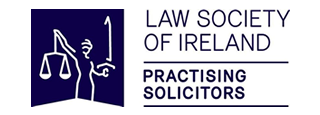Base rate, the interest rate applied to lending, has a significant impact on the supply of money in the UK. It also impacts on price stability, economic growth and our ability to maintain stable exchange rates with other currencies. It was announced in October that Base Rate was to rise from 0.25% to 0.5%, representing the first increase in over a decade since the summer of 2007. This was widely predicted and similarly, it is anticipated that another 0.25% increase will be experienced in 2018. Speculation that there is the possibility of a second 0.25% increase later in 2018 means that within a year the Bank of England base rate could increase to 1%.
Given such developments, should homeowners be concerned about the rising costs of mortgages?
Fixed Rate Mortgage Holders
More than half of homeowners in the UK are already on fixed rate home loans, therefore won’t be affected by the increase in base rate at present. However, their reprieve may be short lived as many are on relatively short fixed term contracts, often two years in duration. The mortgage packages available once these fixed term contracts are up for renewal are likely to be more expensive that previous mortgage packages.
With this in mind, fixed rate mortgage holders should take steps now to minimise the burden on themselves and their families when the time comes to renew their mortgage. This could mean simply putting away a bit extra each month to cover the higher rates, or reducing your borrowings with your savings given the relatively low return from banks at present. It is also worth considering choosing a longer term fixed rate mortgage next time, such as a five year fixed term contract to protect against potential rises in base rate over the next few years.
Variable Rate Mortgage Holders
Monthly mortgage payments for those on variable rates have increased over the past few months, but not astronomically for most mortgage holders. Based on the current 0.25% rise, an approximate £22 per month increase in payments has been cited as the average increase for borrowers with a typical mortgage of £175,000.
Monthly increases will however depend on levels of individual borrowing so if your borrowing is relatively modest the increases may be much less however for those with high level borrowings the increase will be more significant and have a serious effect on disposable income.
Buy-to-Let Mortgages
The biggest losers in the property market at present are perhaps landlords. Unlike homeowners who have repayment mortgages, many landlords have opted for interest-free mortgages over the years as these enabled them to maximise their return when interest rates are low. However, a jump in interest rates such as what we’ve recently seen has an impact, which could quickly become a burden if the further predicted rises in base rate are realised. For example, if base rate is to rise to 1% in the next year, this would equate to an extra £1,000 per year on a £100,000 mortgage or £84 per month.
Economic Trends
Some negative knock-on impacts of the rise in base rate such as increasing interest rates on credit cards, personal loans and overdrafts can be expected, and whilst you may be somewhat concerned about rising costs, there are a number of positive trends to note that shine a more positive light on the situation for Northern Ireland homeowners.
- Unemployment is at an all-time low therefore many households will be in a position to budget for the increases in their monthly mortgage payments. The impact may not be as severe as you might think.
- Although a rise in base rate to 0.5% is still a very low rate of interest and much higher base rates have been experienced in years gone by. The situation could, and has been much more challenging before.
- Whilst interest rates on loans are increasing, savers will benefit from higher interest on their deposits, albeit the returns will still be relatively small.
- House prices in Northern Ireland have been rising steadily in the last year. Your loan to value – i.e. the difference between the value of the house compared to the size of the loan you’ve borrowed to pay for it, will be reduced if the value of your house has increased.
So it’s not all doom and gloom for Northern Ireland’s homeowners, and the impact on each individual or household really depends on your individual circumstances.
If you are concerned about a rise in base rate or simply want some advice on the best approach for you, please contact our property law team on 028 3026 7134 or email us to arrange an initial consultation free of charge.








